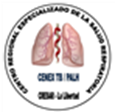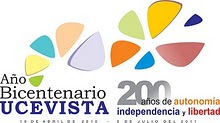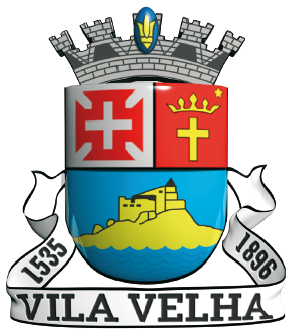CITIZENSHIP COMPETENCIES (COMPETENCIAS CIUDADANAS) A PROMISING PRACTICE MINISTRY OF
ACTIVE CITIZENSHIP GARY TAYLOR ACTIVE2 REQUEST FOR URGENT CITIZENSHIP CEREMONY –
2017 ANNUAL AWARDS CEREMONY MERITORIOUS CITIZENSHIP AWARD THIS
22 REFRAMING SOCIAL CITIZENSHIP TRUST DISQUIET AND WELFARE STATE
23 INDUSTRIAL CITIZENSHIP A RECONCEPTUALISATION AND CASE STUDY OF
7 Families Social Capital & Citizenship a Project
CITIZENSHIP COMPETENCIES
Citizenship Competencies
(Competencias Ciudadanas)
A Promising Practice
Ministry of Education
Colombia
Why was the program chosen to be shared with other countries?
Because it is a national program that offers a comprehensive picture (the cognitive with the emotional and the communicative) that seeks to find the root of democratic behavior and that creates tools to evaluate its components and offers practical elements for its implementation in the school and in the classroom.
Origins and Context of the Program
Educating for citizenship is an important priority nowadays in any part of the world. Due to the situation of violence in Colombia, it is indispensable to educate boys, girls and young people to be sensitive, responsible, respectful, free and able to solve conflicts through peaceful means in order to build a just and democratic society.
The Citizenship competencies are the grouping of cognitive, emotional and communicative abilities, knowledge and attitudes that together enable each citizen to act in a constructive manner in a democratic society. Citizenship competencies allow for citizens to respect and defend human rights, to contribute actively to a peaceful living, to participate responsibly and constructively in the democratic processes and to respect and value plurality and differences. Citizens accomplish all this not only in their immediate surroundings (family, friends, school) but also in the community, the country and the international level as well.
Description
The Citizenship Competencies refers to knowing how to interact in a democratic society.
The Citizenship Competencies program seeks to develop communicative, emotional, and cognitive development competencies, integrated with knowledge acquisition and application about the State. This shall be further integrated with the norms and the mechanisms for living together, in order to provide a civic education in civic values based on actions and not on the expression of ideas. The Program consists of a national policy for all educational institutions to promote and be committed to the development of citizenship competencies based on the definition of basic standards, on the evaluation of such competencies and the use of the tools to develop plans for institutional improvement. For the last, the Program is based on the identification, organization and support of important national experiences and on consolidated programs that have produced educational materials and that have experience in teacher education.
In our work we have classified citizenship competencies into the following four categories:
Respect and defense of human rights
Coexistence and peace
Participation and democratic responsibility
Plurality, identity and value of differences
Objectives
Definition of basic standards for citizens’ competencies. The standards are defined as clear and public criteria for establishing which are the basic educational quality levels all children in the country have the right to receive at all educational levels.
Diagnostic evaluation of the development of citizenship competencies. The Evaluation of the Citizen Competencies – which had never been carried out at a national level –- intends to know in detail the development of the competencies in specific aspects as: political image, knowledge about the structure and functioning of the State and of the national political system; cognitive emotional and communicative abilities; interpersonal relations and practices of living together. The evaluation results will allow the educational institutions to design their plans according to the specific needs and the evaluation itself serves as a tool to learn and to know how students are, think and feel in order to plan the classes not exclusively according to the subjects but also according to the student’s characteristics and needs.
Improvement plans based on the standards and on the test results. Work will be carried out together with the Secretariats of Education to guide and accompany the educational institutions in the design and implementation of the Improvement Plan in the theme of citizenship competencies. At the same time, commitments will be made, designing formats for evaluation and follow up of their own actions and design curricula related to the Institutional Educational Projects (PEI) of each institution. In order to support this process, there will be: 1) identification and references of important practices and experiences to provide adequate support to the teachers and to educational institutions in the qualification process of the pedagogical practice and, 2) develop seminars with successful programs that have materials that had been already tested and with pedagogical experience in accompanying the improvement plans of the institutions. The important pedagogical practices will be disseminated through new alternative means of communication such as educational television and the generation of networks and virtual discussion forums, made possible thanks to the internet access.
Duration, Coverage and Target Population
The program started in 2003 and will last permanently as a state policy. It covers 78 territorial entities, (32 Departmental Education Secretariats, 42 certified Municipalities and 4 District Secretariats) which in turn covers a total 36,000 educational institutions in the country. The program targets the education community (principals, teachers and parents) that make up all educational institutions of the country.
Educational Components
Curriculum
The curriculum standards are to be developed together with the Asociación Colombiana de Facultades de Educación (ASCOFADE), as well as university researchers and teachers; all from various parts of the country. The citizenship competencies will have to be worked on in every aspect of the curriculum, albeit some specific themes will be worked in the area of Social Sciences.
Pedagogy and teacher preparation
Training in this new theme will take place through national workshops to disseminate and understand the standards, as well as the test results and to motivate the discussion in the forums of important experiences about this theme in order to support the design and implementation of improvement plans. Afterwards, through the organization of the municipal, state and national forums, the most important experiences that deal with the didactics and effective tools for the development of the three areas of citizenship competencies will be exchanged. The dissemination of these practices will be through new communication alternatives such as educational television and the development of networks and virtual discussion forums which are possible thanks to access to the Internet.
Materials
The Minister of Education will identify and disseminate the materials that can be used as reference for the development of citizenship competencies. The Ministry also plans to translate and adopt educational materials from other countries that have shown good results in education for peace.
Applicability of the program in other contexts
The program can also be applied to countries not characterized by the violence that our country has been through.
ACQUISITION OF CITIZENSHIP OF THE REPUBLIC OF SLOVENIA FOR
ACQUISITION OF SOUTH AFRICAN CITIZENSHIP THE ACQUISITION LOSS AND
AFFIDAVIT OF US CITIZENSHIP OF (NAME OF CORPORATION)
Tags: (competencias ciudadanas), competencies, citizenship, practice, (competencias, ministry, promising, ciudadanas)
- POSTOVANI GOSPODINE DJORDJEVICU UOPSTE ME NE CUDI STO NAS
- HOMEOWNERS ASSOCIATION INC ACC PROPERTY MODIFICATION APPROVAL REQUEST
- DATO 2004 2018 TIL ALLERØD KOMMUNE SKREVET AF SENIORKONSULENT
- AIVOVERENKIERTOHÄIRIÖT POTILAAN TUTKIMINEN JA HOITOKÄYTÄNTÖ 112008 AVHTYÖRYHMÄ HYKS NEUROLOGIAN
- LAKE STEVENS EDUCATION ASSOCIATION A WASHINGTON NONPROFIT ORGANIZATION BYLAWS
- RETTSMEDISIN OMSKREVET AV KNUT HARBOE ETTER ORIGINAL AV ØYSTEIN
- DRAFT CONSTITUTION (SAMPLE ONLY) 1 NAME THE NAME OF
- 1 8TH ISRAELI MEDICAL ASSOCIATION WORLD FELLOWSHIP INTERNATIONAL CONFERENCE
- ANKARA BAROSU KADIN HAKLARI KURULU BOŞANMA EĞİTİMİ 31 OCAK
- FRENCHSTYLE POT ROAST WITH CARROTS MUSHROOMS AND PEARL ONIONS
- RENGINIO „SENŲJŲ AMATŲ DIENOS NERINGOJE 2020“ VYKSIANČIO 2020 M
- ALMA MATER STUDIORUM UNIVERSITÀ DI BOLOGNA (9067) 2ND
- REVISIONS TO NORTHAMPTON SUBDIVISION REGULATIONS APPROVED APRIL 17 2008
- SCIENCE YEAR 5 BIOLOGY STRAND LIVING THINGS AND THEIR
- STEP 1 INQUIRY APPROACHES TO TEACHING DEMONSTRATION LESSON
- ANEXO I RELACIÓN DEFINITIVA ADMITIDOS Y EXCLUIDOS PLAZA DL001372
- INDTA TÄVLINGSADMINISTRATIVT SYSTEM PÅ IDROTTONLINE MANUAL GE ANVÄNDARE
- VEGYIPARI MŰVELETEK IV FELADATOK 200708 1 (EXCEL) MEZITILÉN KATALITIKUS
- MULTIVARIATE INTERPOLATION OF PRECIPITATION USING REGULARIZED SPLINE WITH TENSION
- MINUTES OF THE SCVAL 2007 TRACK PRESEASON MEETING MEETING
- LIETUVIŲ KALBOS DIENOS VASARIO 16–KOVO 11 D RENGINIAI MAŽEIKIŲ
- GRAMÁTICA DEL LENGUAJE TINY PROGRAMA SECUENCIASENT SECUENCIASENT
- FORM B THOMPSON SCHOOL DISTRICT R2J FIELD TRIPACTIVITY PERMISSION
- BEHEAN AZALTZEN DENAK (NANAREN FOTOKOPIA AURKEZTU BEHAR DA) LA
- I DIECI PUNTI DI BANDUNG [1955] RISPETTO DEI
- NUMERO 253 EL CONGRESO DEL ESTADO LIBRE Y SOBERANO
- LOCAL FIREFIGHTER PENSION BOARD OF NOTTINGHAMSHIRE AND CITY OF
- INSARAG ANNUAL USAR TEAM LEADERS MEETING NEW DELHI 1315
- EVALUATION OF COOKING CLASS CURRICULUM PLEASE COMPLETE AND RETURN
- ANSYS EXERCISE MODAL ANALYSIS OF A SPRINGMASS SYSTEM COPYRIGHT
DEPARTAMENTO DE LENGUA CASTELLANA Y LITERATURA DISTRIBUCIÓN DE LOS
WNIOSEK NAZWISKO I IMIĘ PESEL ADRES
 5 CENTRO DE EXCELENCIA PARA MANEJO DE TB “LUZ
5 CENTRO DE EXCELENCIA PARA MANEJO DE TB “LUZINTRODUCCIÓN HABLAMOS DA RESPUESTA A UNA PROGRAMACIÓN DONDE SE
REVISED 2 NOVEMBER THREE RIVERS TIMES AUTUMN WINTER 2011
 CONSTITUCIÓN POLÍTICA DEL ESTADO DE VENEZUELA DE 1819 (15
CONSTITUCIÓN POLÍTICA DEL ESTADO DE VENEZUELA DE 1819 (15 ENUNCIACIÓN SIST NOMINAL DECLINACIÓN MASFEM NEUTRO 1º DECL A
ENUNCIACIÓN SIST NOMINAL DECLINACIÓN MASFEM NEUTRO 1º DECL AWHITEHEAD’S PROCESS MODEL AND THE HUGHESINGOLD MODEL IN ORGANIC
 CÂMARA MUNICIPAL DE VILA VELHA ESTADO DO ESPÍRITO SANTO
CÂMARA MUNICIPAL DE VILA VELHA ESTADO DO ESPÍRITO SANTOIL RITORNO DI ULISSE A ITACA ULISSE DOPO AVER
 VLOGA ZA PRESKUŠANJE CERTIFICIRANJE IGRALNIŠKIH PROIZVODOV IZPOLNI SIQ
VLOGA ZA PRESKUŠANJE CERTIFICIRANJE IGRALNIŠKIH PROIZVODOV IZPOLNI SIQPROPOSAL FORM FOR CAPITAL EQUIPMENT PURCHASES FOR THE FACULTY
A FŐVÁROSI HAJLÉKTALANELLÁTÓ INTÉZMÉNYEK ALAP INFORMÁCIÓS KIADVÁNY ÉJJELI MENEDÉKHELYEK
 MATEMATIKK MATEMATIKK 1KLASSE MATEMATIKK I DAGLIGLIVET
MATEMATIKK MATEMATIKK 1KLASSE MATEMATIKK I DAGLIGLIVET MEETING THE NEEDS OF STUDENTS WITH IMPAIRMENTS POLICY STUDENT
 LAPORAN KERJA PRAKTEK (EV001) EVALUASI OPERASIONAL DAN PERAWATAN INSTALASI
LAPORAN KERJA PRAKTEK (EV001) EVALUASI OPERASIONAL DAN PERAWATAN INSTALASILOS PEDIATRAS NAVARROS POR LA SALUD DE LOS NIÑOS
 NR XX2019 COMUNICADO RECHTECK 11 NOVIEMBRE 5 2020 PRIMER
NR XX2019 COMUNICADO RECHTECK 11 NOVIEMBRE 5 2020 PRIMERMARTHA VITALIA CORREDOR MONTAGUT DIRECCIONES ELECTRÓNICAS SITIO WEB HTTPWWWMARTHAVITALIACOM
WEB HOSTING CHARGES FROM HOST GATOR PERSONAL VISA ACCOUNT